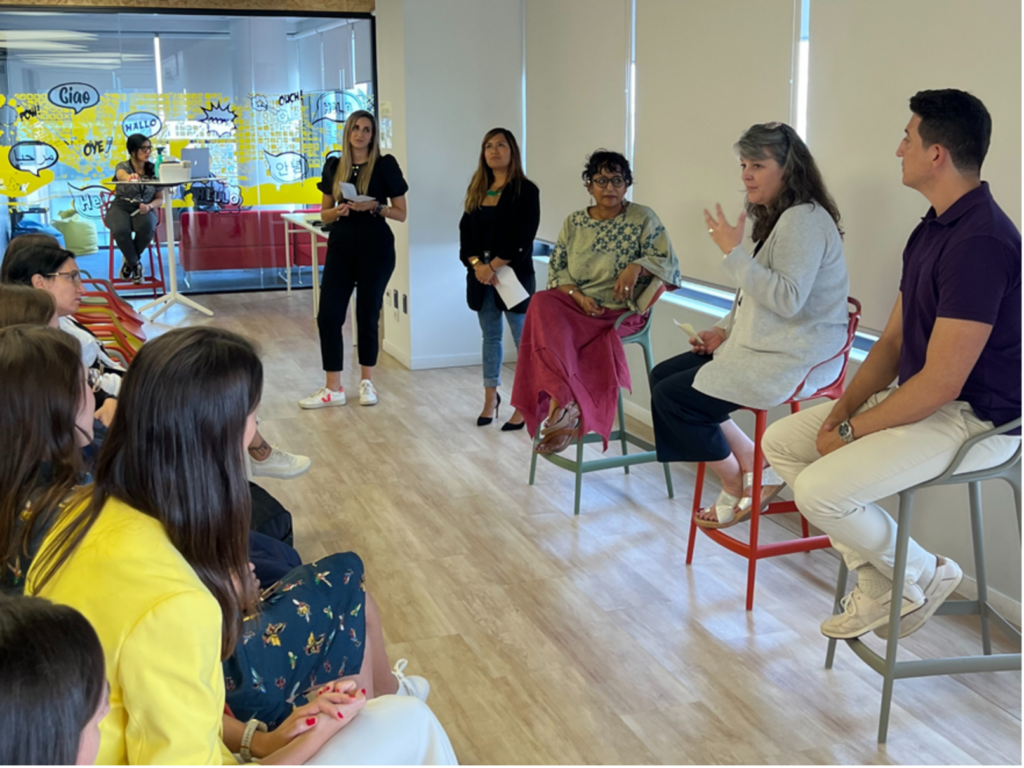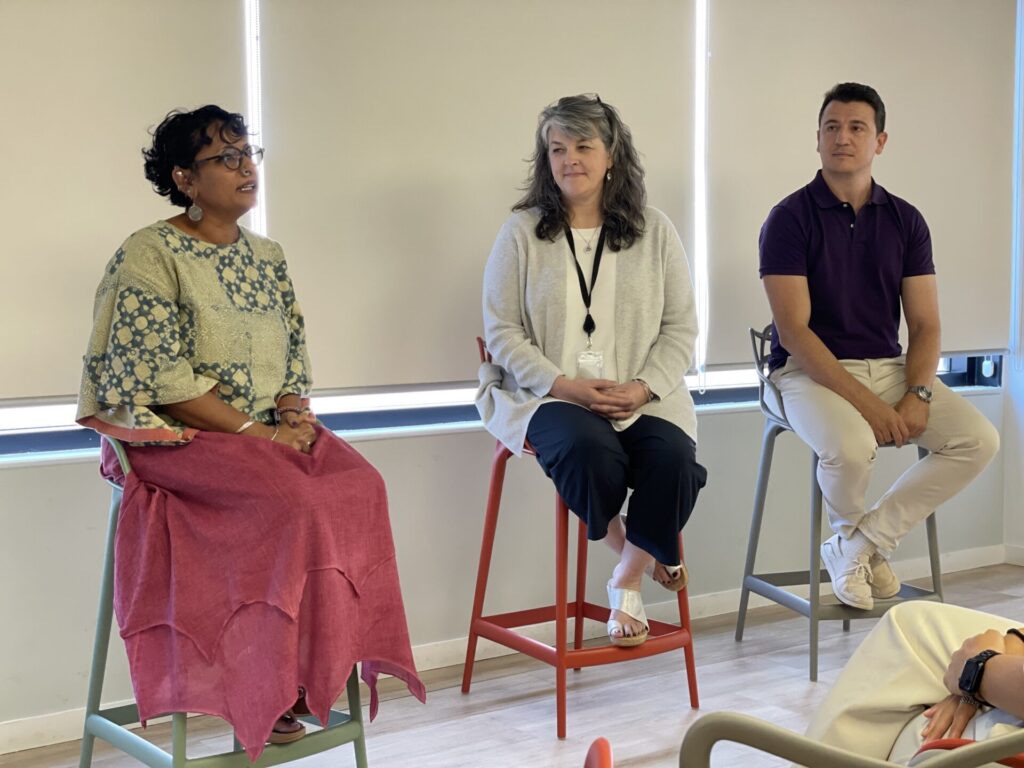
Our Autodesk Women’s Network (AWN) employee resource group empowers women at all levels of Autodesk to develop and realize their full leadership potential. We support members in bringing their authentic selves to work, as we believe a sense of belonging, connection, and purpose leads to happier lives at work and beyond. AWN drives initiatives in the areas of professional development, community building, and strategic partnerships, and provides great development and networking opportunities.
In October, we hosted an event at our Barcelona office to get inspired and reflect on the concept of allyship. Our special guests invited to address this topic included Meg Looney, Senior Director, Global Revenue Enablement; Kavitha Glenister, Senior Manager, Global Landing; and Alessio Siragusa, Senior Manager, Emerging Market Inside Sales. The panelists openly discussed and answered important questions to enable AWN members to be empowered in their everyday lives and careers.
Here are some of the key takeaways from the conversation:
How can we make space for each other between women?
Meg: The perception is that women are so competitive between women because the space is scarce for women to move forward. The way I think we overcome that is by shifting that mindset, going against the perception that women are competitive with each other.
By being intentional about building each other up, being supportive of one another, and building a community that understands shared experiences and struggles, we can make an intentional space for women to have conversations about where they need help or someone to step in for them and recommend them, as opposed to holding them back. We need to recognize that we are stronger when we are together and not alone.
Kavitha: Reach out. There are people out there who are willing to speak for your cause, and it’s a matter of finding them. I’m not saying it’s your sole responsibility, but there’s an opportunity to create space for others to be allies. People who have privilege don’t always realize this is something they can do. If we can wake up some of that perception, I think we can find it a lot easier.
Alessio: There is a lot we can do as individuals when it comes to understanding others and understanding our own biases. Whether it’s from our family, the conflicts we’ve been raised into, mass media, social media, or whatever it might be, we all have biases of many kinds, and being aware of them is crucial. Otherwise, no matter the conflicts you might be in, if you don’t solve your biases, you can never embrace diversity.

How can individuals and organizations foster a culture of allyship within their workplaces?
Kavitha: Be aware and think about how to work out where your privilege is. In which areas do we have privilege? Think about where you’re comfortable, where you don’t have to stick your elbows out a little bit to make space. Stop and see who in that space is sticking their elbows out and having to fight a little bit harder or whose voice is a little bit quieter.
Alessio: It’s important to understand what has happened to minorities historically where, while opportunities and doors might open easily for some now, there is a history of others who didn’t have the same privileges – or even more, that every door was closed for them, or they had fewer opportunities overall. Once we understand that, we have the basis to lead, convince others, or share these thoughts with others who might be in the same position of privilege we are.
Then, organizations can work with individuals in leadership positions to create new processes that enable people to try regardless of their gender, sexual orientation, or religion. It can be simple things like new structures of team meetings with a lightning round at the end where everyone has the chance to speak up, or implementing new performance review methods that don’t take into consideration other factors except performance.
Meg: You have to advocate for yourself. You have to be empowered to say, “Here’s my boundary; don’t cross it.” Whatever comes may come, but it’s important to recognize that if there’s a negative impact for some reason, then it’s probably not the right space for you and probably not the right environment you want to be in. Also, any time there are microaggressions in a room, you have to call it out. As a manager, I recognize the importance of my actions to protect my peers and my team, making sure I’m the voice in the room that sets those boundaries.
Allyship in the workplace is a powerful force that fosters collaboration, empowerment, and growth. By embracing and nurturing this sense of solidarity, organizations can create an inclusive and supportive environment where women (and other marginalized groups) can thrive, break barriers, and achieve their full potential.
It’s also important to note that allyship is an ongoing process that requires continuous learning, self-reflection, and action. It involves actively engaging in conversations about privilege and oppression, and being willing to make personal and organizational changes to promote equality and inclusivity.
Learn more about Autodesk Women’s Network here.